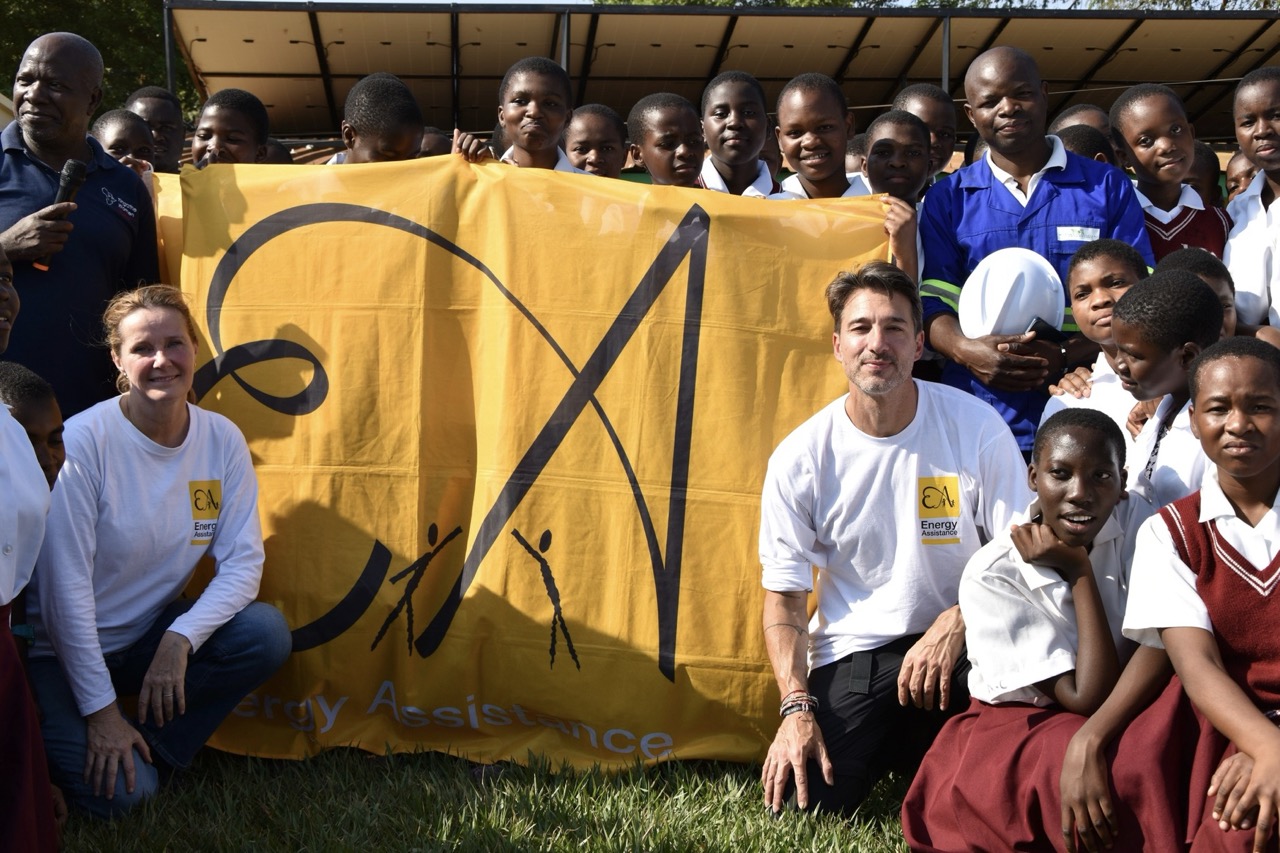
On November 20, 1989, the rights of every child in the world were recognized by the International Convention on the Rights of the Child (CRC), adopted by the UN General Assembly. This international text sets out four fundamental principles for children: the right to live, survive and develop; the best interests of the child; non-discrimination; and respect for the views of the child.
Since then, November 20 has been designated International Children’s Rights Day. On this day, we celebrate the projects and actions carried out to advance children’s rights. For children are both the most vulnerable and the future of our society.
Universal Children’s Day offers each and every one of us a unique opportunity to raise public awareness of children’s rights, to promote and highlight them, and to transform this date into concrete action in favor of children everywhere.
For 30 years, the ENGIE Foundation has been working to help the most vulnerable children by supporting projects that have an impact on their lives, via:
- Access to education, culture and health,
- Access to energy and essential goods, because without energy there can be no schools, hospitals, drinking water..,
- Integration, employment and the fight against poverty, to enable economic activity that promotes community development.
The ENGIE Foundation wishes to give the most vulnerable children the energy to learn and grow in a positive environment, and is convinced that children will build tomorrow’s world. Giving them the energy to act is vital for the future of the planet.
Mobilizing employees for children's education with Energy Assistance
Reinforcing the education of 600 girls at Likuni Girls' Secondary School, Malawi
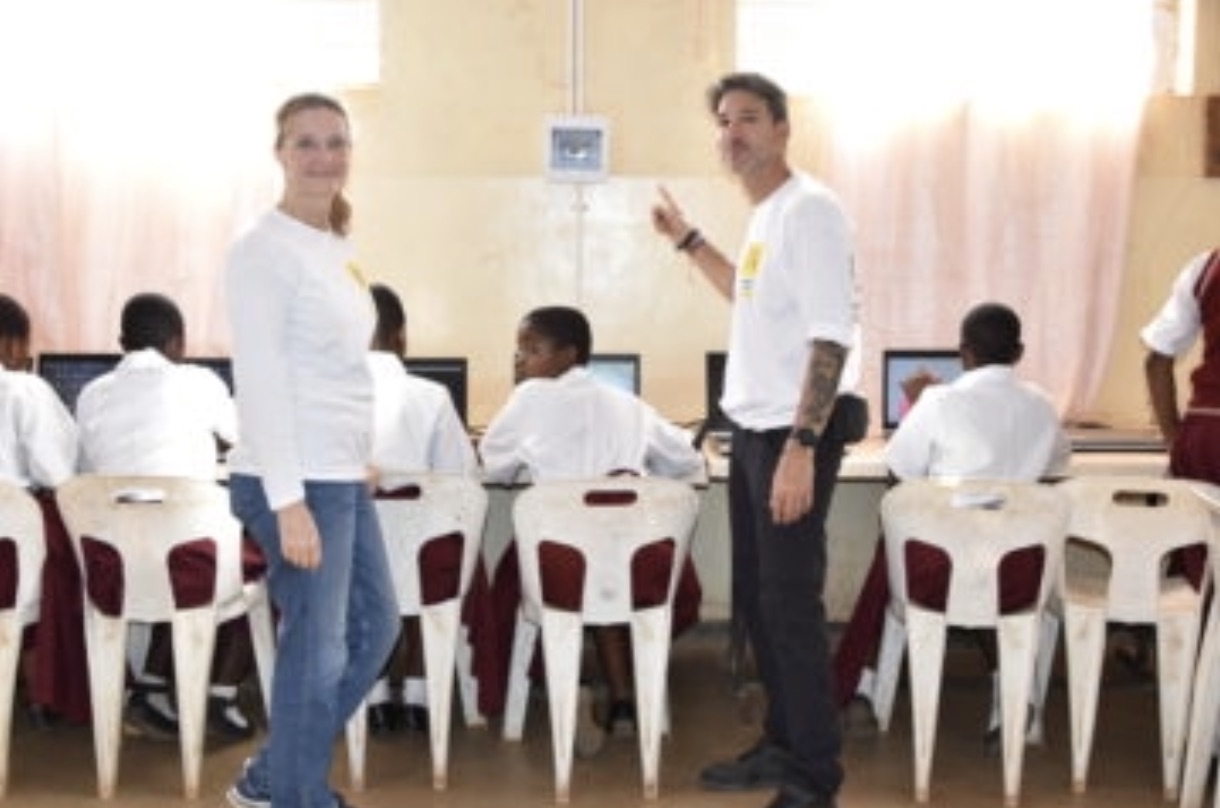
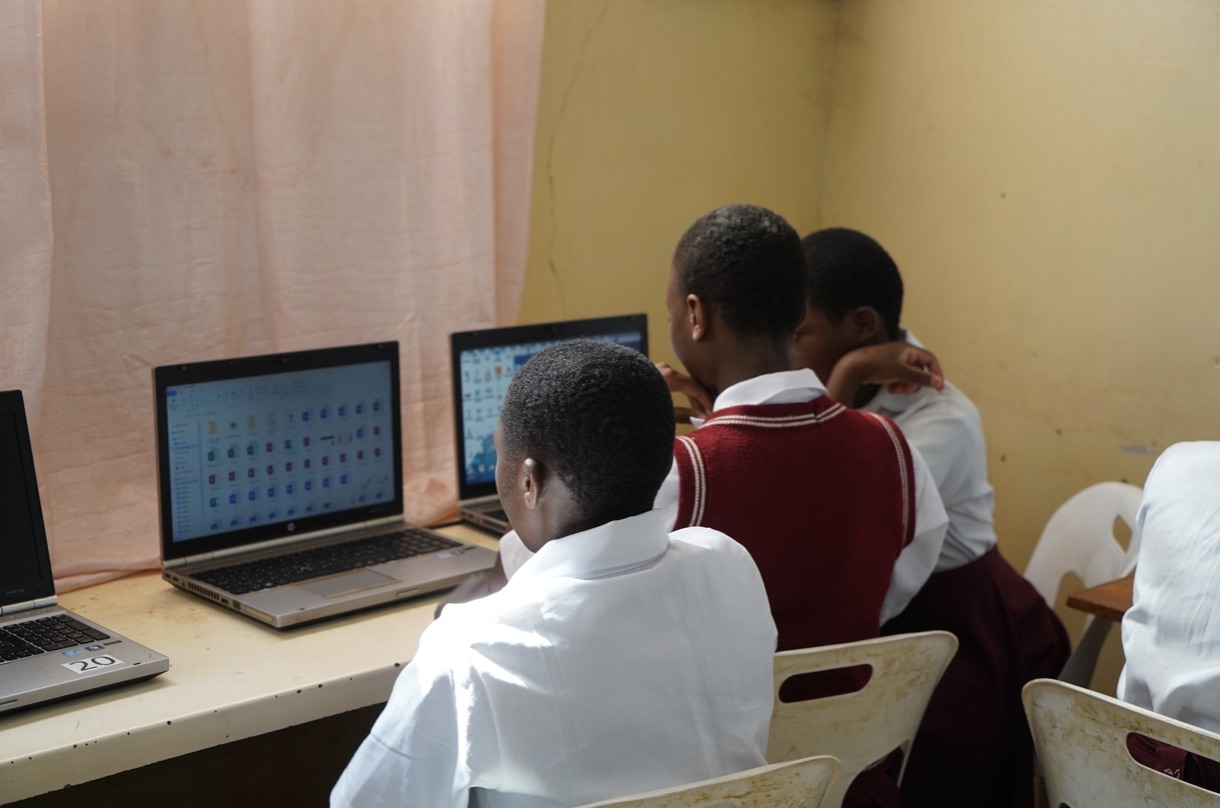
ENGIE volunteers from ENERGY ASSITANCE Belgium have helped improve the educational landscape for 600 girls at Likuni Girls’ Secondary School in Malawi, by installing solar panels and batteries.
Malawi faces frequent power cuts that disrupt the learning process. Solar power is a reliable source of energy that not only lights up classrooms, but also contributes to the well-being of our planet.
Lighting the way to education:
Likuni Secondary School for Girls, a boarding school near Lilongwe, caters for 600 girls. The solar system not only lights up the classrooms after dark (around 5 p.m. because of the latitude), but also powers 30 computers, providing access to modern educational tools. We firmly believe that every girl deserves a chance at a bright future, and that access to education is the key.
Although the school is connected to the local grid (ESCOM), persistent power cuts led to the installation of 22 photovoltaic panels and 4 lithium batteries as back-up. The panels were placed on the roof of the school building, and a restored technical room now houses the solar control equipment, electrical boxes and batteries. The solar system (nearly 10kWp with a storage capacity of 19.2kWh) ensures a continuous power supply to classrooms, the computer room and the administration block during blackouts.
Towards sustainability and ecological friendliness:
In addition to the classrooms and administration block, the dormitories, kitchens, etc. are still not connected. A feasibility study is underway to supply the kitchen with biogas. This would enable daily meals to be prepared without the need for electricity or firewood, and provide biofertilizer for the vegetable garden, thus offering an environmentally-friendly solution. The aim is to combat deforestation and improve the school’s self-sufficiency.
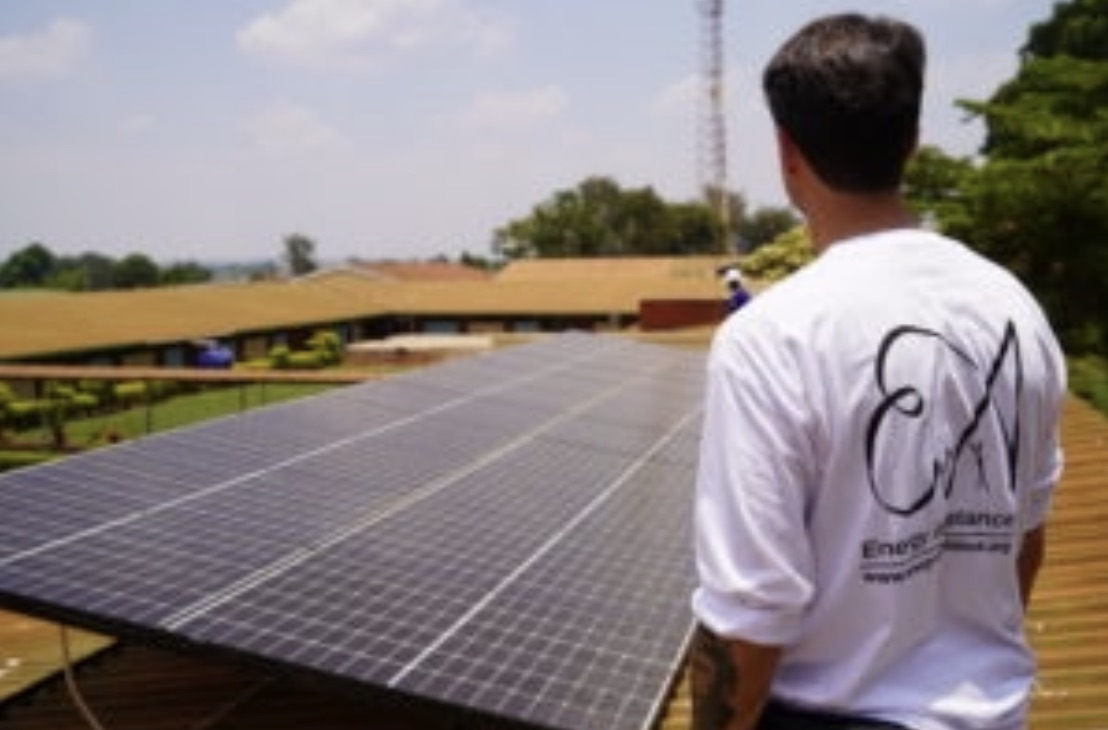

Promoting biodiversity for a sustainable future:
As part of its commitment to sustainable development, Likuni Girls’ Secondary School is committed to planting 800 indigenous trees. This planting aims to reforest areas of Lilongwe most affected by deforestation (mainly for firewood and charcoal) and to teach girls the benefits of having trees nearby. Trees planted along watercourses aim to reduce flooding during the rainy season, which is particularly dramatic given the floods that have hit Malawi in recent years.
Health education with “The Healthy School Program” in Brazil
The Healthy School program aims to improve the quality of life of children and communities through health and nutrition education. The Healthy School strategy is based on transforming children into agents of change, so that they can pass on educational messages to their families and communities.
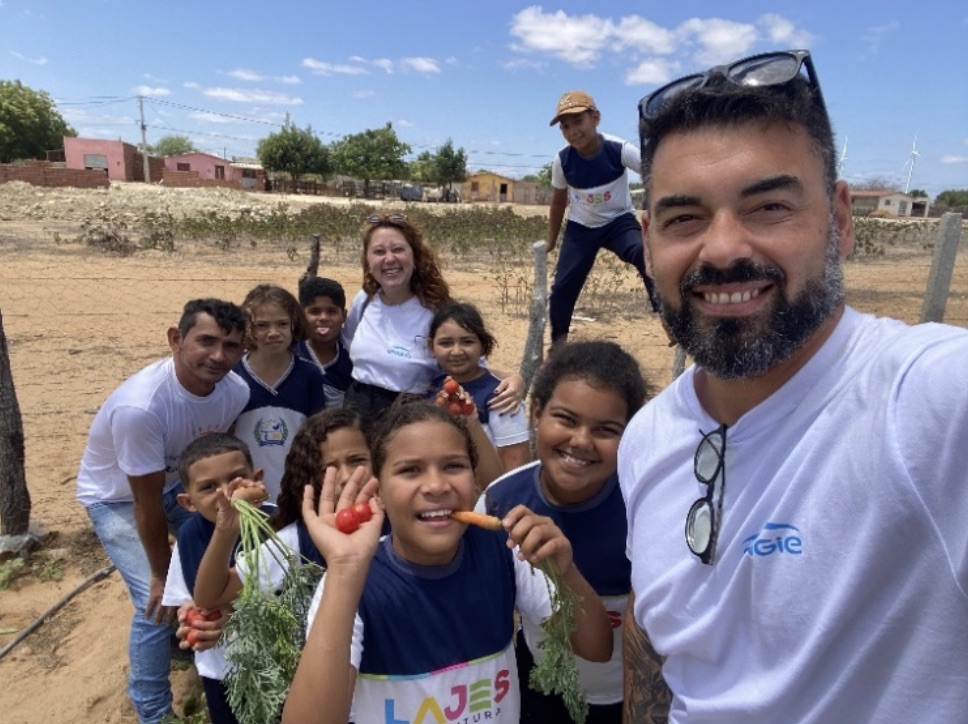
The main components of the program are as follows:
- Sustainability: establishing a solid foundation for the program through partnerships with local stakeholders; training local staff and including program themes in the schools’ political/educational curriculum
- Education: training of teachers, canteen staff and community health workers on program themes; monthly educational activities for children and communities; integration of themes into the school curriculum (cross-cutting themes) and effective changes in school communities.
- Health: monitoring of children’s health and treatment of iron-deficiency anemia.
- Monitoring and evaluation: initial and final evaluation (including knowledge and impact of actions).
The aim of the Healthy School program is to develop a sustainable culture of healthy lifestyles in schools and communities.
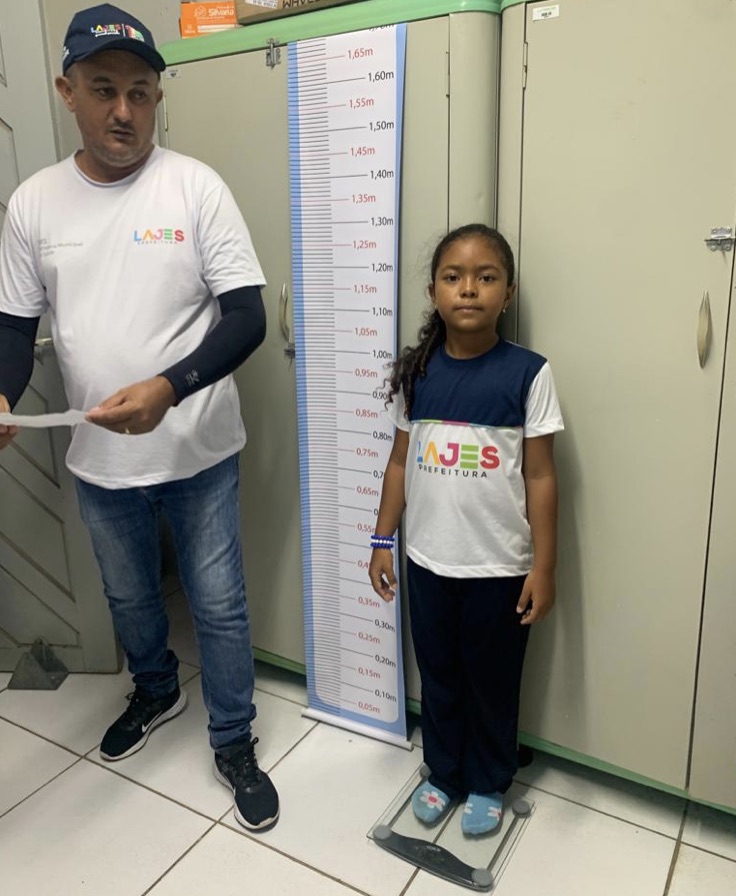
IMPACT: The program directly affects 1,334 children from 16 public schools in the municipalities of Lajes and Pedro Avelino, as well as 113 teachers, 25 cafeteria workers and 49 community health workers. Indirectly, the program reaches around 5,000 people in the community, including children, young people and the elderly.
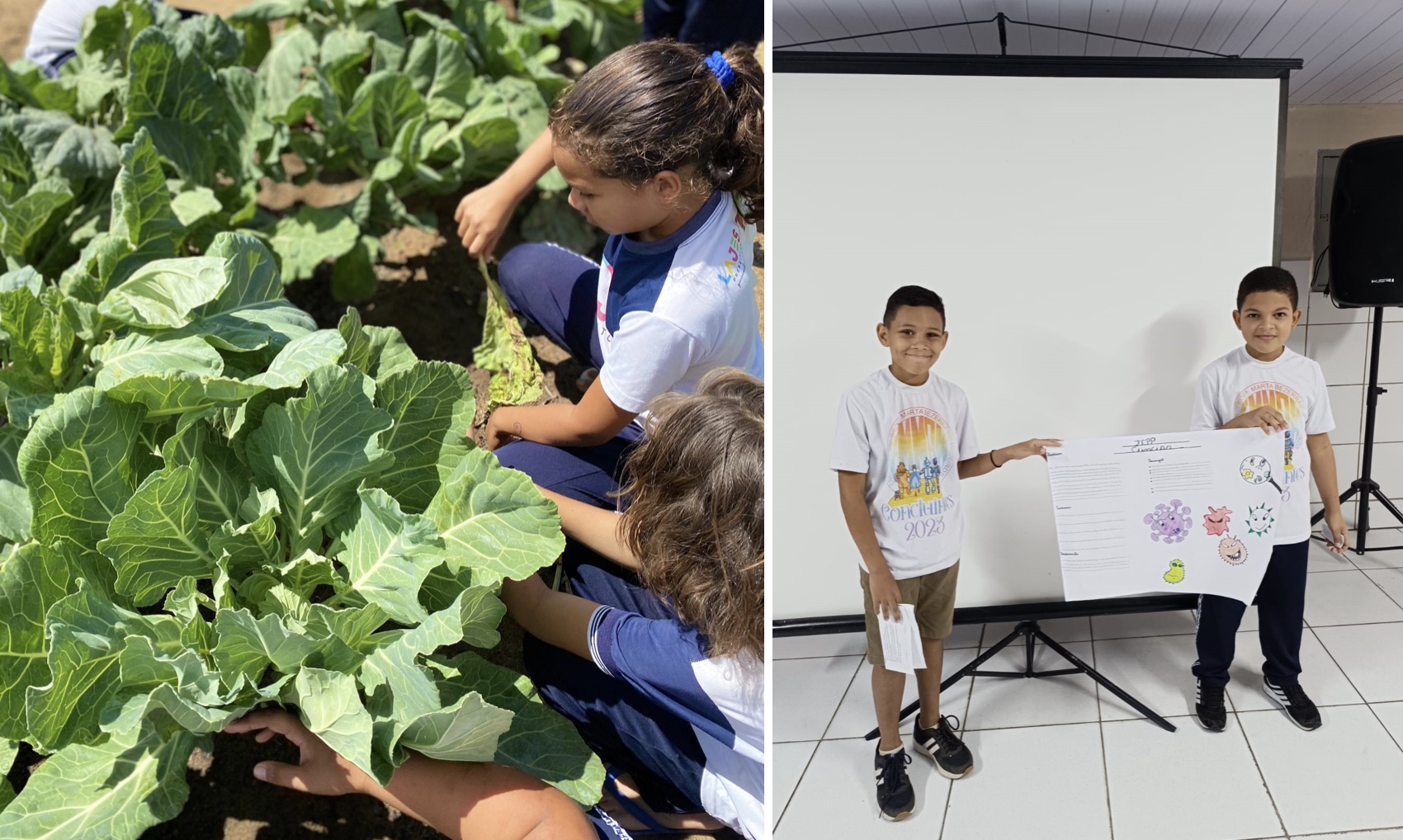
The program aims to meet several specific objectives:
- Determine the nutritional status of children participating in the program (including levels of anemia, overweight and underweight)
- Improve teachers’ and school staff’s knowledge of nutrition, healthy lifestyles and environmental education.
- Strengthen the school community so that the school becomes a model “healthy school”, giving priority to healthy habits and behaviors.
- Promote alternatives for drinking water, with training in the SODIS (“Solar Water Filtration”) method
- Promote the sustainability of the program and its actions, with ongoing training for the educators involved and the establishment of local partnerships.
Access to healthcare in INDIA with La Chaîne de l’Espoir

La Chaîne de l’Espoir, in partnership with the Indian NGO Taabar and with the support of the ENGIE foundation, has developed a mobile health clinic dedicated to the care of young girls and women in various districts of Jaipur.
The mobile clinic brings together a team of 7 people: a female doctor who knows the particular problems faced by young girls, a nurse, a driver, a counselor, a coordinator and two health educators.
Each district of Jaipur, depending on its population and the ethnic groups living there, presents more or less recurrent health problems. The clinic’s gynecologist believes that many problems are linked to misinformation and lack of knowledge among parents about the female reproductive system and the menstrual cycle. She also explains that these subjects are often taboo in most communities, and that sessions with young girls and sometimes their parents help to free up the floor for discussion.
IMPACT
Nearly 5,000 girls were seen for consultations between January and July 2023. Taabar estimates that by the end of the year, they could be more than 10,000.
Several types of psycho-social support sessions are organized:
- Individual sessions that enable girls to address certain issues in private.
- Group sessions, accompanied by a pre- and post-test to assess knowledge and the impact of the sessions.
Finally, referral is a tool that redirects beneficiaries to special medical attention in hospital institutions.
IMPACT: 2925 session beneficiaries
1860 participants in group sessions, 1245 participants in individual sessions and 40 referrals were done.
